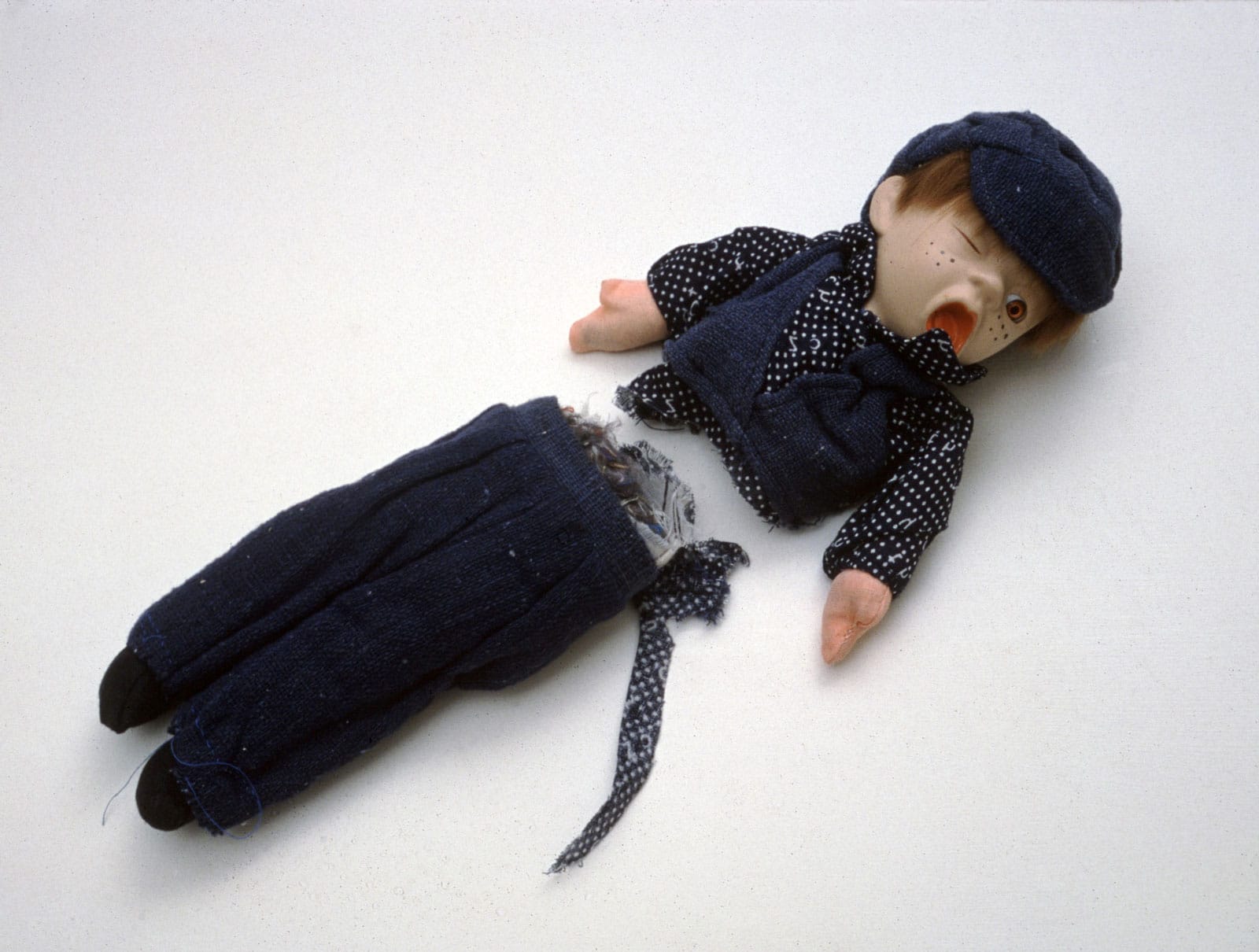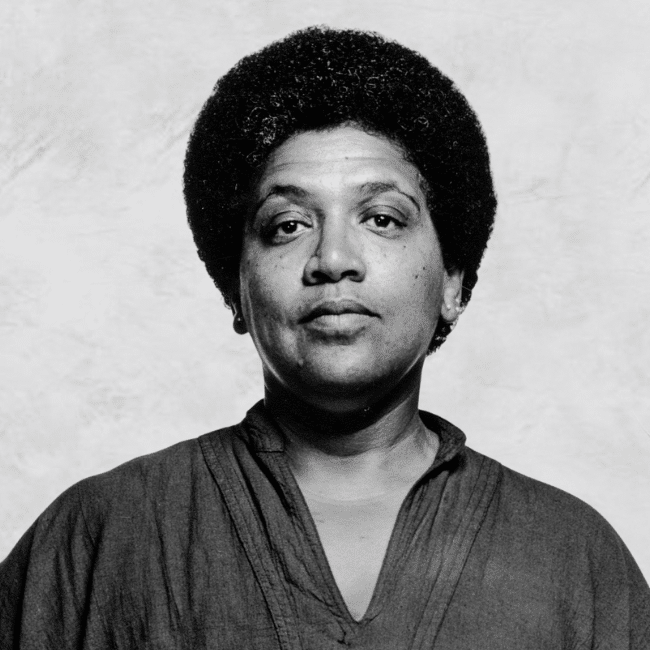Ethics Explainer: Aesthetics

Aesthetics is the philosophical study of art. If you think about what is enjoyable, or valuable about artworks, and why art is important, then you are considering issues to do with aesthetics.
The study of aesthetics is tricky because there are so many different kinds of artworks and it is difficult to think about what they have in common or how they should be categorised or judged. A seminal question in the field of aesthetics is ‘what is art?’ – how ought art be defined? And this question alone has various answers depending on which theory is being applied.
Art defined.
Art includes sculpture, painting, plays, films, novels, dance and music. And it isn’t always clear what the category of art excludes – in large part because artists are always pushing boundaries. The creative nature of art sees works or objects being considered as ‘Art’ that provoke shock, outrage, censorship or exclamations of ‘That’s not Art!’.
Just think about the first time Marcel Duchamp tried to display an artwork called ‘Fountain’ in 1917. The urinal, a ‘found object’ was signed by the artist ‘R. Mutt, 1917’, and caused a riot of disagreement as to whether art must be created or made with one’s own hands or whether it can be intentionally chosen and displayed.
Is it the creation or the reception of the artwork that matters the most?
Who decides whether something is a work of art? Is it ‘the artworld’ of experts and critics? Is it the artist? Or is it the viewer? Many viewers may not understand what they are seeing or may not truly appreciate the skill involved in creating a particular artwork.
For instance, the first time one looks at a Rothko painting, which may appear as a blank canvas painted with a couple of coloured squares, a viewer may think, ‘I could have painted that!’ It is only with an understanding of Rothko’s technique that one may start to appreciate the effort he put in to create it.
And even if we appreciate the skill and effort an artist exerts, we may or may not feel any particular ‘aesthetic experience’ when looking at a piece of abstract or contemporary art, while watching an opera, or while reading a novel by Dostoevsky.
An individual perspective
One’s experience of art is subjective as individual tastes differ. And yet, if we are to claim that some artworks are better than others, or explain why some artworks stand the test of time and are valued by generations, we need to refer to some standards by which to judge them. Are there any features artworks must have to be considered as art? Should artworks be beautiful? Do they need to be moral? And who decides whether or not they meet this criteria?
Despite the historical interference by political and religious leaders who worry about the influence art may have in a society, debates as to what constitutes good art, aesthetically and even morally, has been a matter for debate for aestheticians.
Sometimes it takes time for something to be considered art, let alone to be considered aesthetically valuable. Think about Banksy’s graffiti art. It has been the case that unsuspecting council workers have removed graffiti from the side of a building only to later discover they have inadvertently eliminated a valuable artwork. And yet, not all graffiti is considered art or deemed valuable.
In fact, the opposite is true!
What makes Banksy an exception?
View this post on Instagram. "The urge to destroy is also a creative urge" – Picasso
A post shared by Banksy (@banksy) on
Definitions of art have changed over time. Traditional views of art usually cited ‘beauty’ as an important feature of artworks, but that has since altered. Indeed, is one meant to find the displayed urinal ‘beautiful’? An artwork need not be beautiful to be skilfully executed, meaningful and valuable.
The value of art in society
The defenders of art and its unique role in society usually claim art should be valued for its own sake. Aesthetic value is not to be valued instrumentally, for its financial value or for its status, or even for what we can learn from it or because it is deemed morally ‘good’. It may do any and/or all of these things, or none! Art is valuable because it affords an aesthetic experience.
In its creation and reception, as a form of self expression, imaginative engagement, cognitive as well as affective experience, source of individual and social reflection and contemplation, art has always been central to human life. If it is true that the arts capture and express something unique, and aesthetic experience is intrinsically valuable, then we should consider the place for the arts in society and support and value artists for the important contribution they make.
Dr Laura D’Olimpio is a senior lecturer in philosophy of education at the University of Birmingham, UK.
MOST POPULAR
ArticleBeing Human
The problem with Australian identity
EssayBUSINESS + LEADERSHIP
The role of ethics in commercial and professional relationships
EssayBUSINESS + LEADERSHIP
Understanding the nature of conflicts of interest
ArticleSOCIETY + CULTURE
What it means to love your country
BY Dr Laura D’Olimpio
Dr Laura D’Olimpio is senior lecturer in philosophy of education at the University of Birmingham, UK, and co-edits the Journal of Philosophy in Schools.
BY ethics
Ethics programs work in practise

Ethics programs work in practise
Opinion + AnalysisSociety + Culture
BY The Ethics Centre ethics 19 DEC 2018
New research released today reveals that organisations with clear ethics programs are more likely to be seen as responsible in their business practises by their employees.
The new survey, undertaken by The Institute of Business Ethics (IBE) in partnership with our team at The Ethics Centre (TEC) found that the majority of Australian employees are aware that their organisations have each of the building blocks of an ethics program; a code of ethics, training, and a ‘speak up’ line.
“Ethics at Work” was launched to The Ethics Alliance members this morning through an intimate panel discussion that explored the implications of the findings, featuring Philippa Foster Back of IBE, John Neil and Cris Parker of TEC and Jill Reich of Uniting.
The survey reveals that awareness of ethics programs positively impact how employees feel their company deals with stakeholders. Those with an ethics program are significantly more likely to feel that their organisation acts responsibly in business dealings, at 84 percent. This compares to less than half of those without an ethics program (49 percent). There was one counter-intuitive result where 42 percent agreed their line manager rewards employees who get good results even if it’s through questionable practises.
We’ve spent the last 30 years working with individual organisations to establish ethical frameworks, and worked with many major organisations in recovery from ethical failure. The impact of clear lived values and principles at all levels of an organisation is tremendous, and instrumental to a positive, supportive culture.
The survey also illuminated the role managers play in upholding behaviours within the workplace. Managers were more likely than non-managers to view their organisation positively, both in engagement with stakeholders (77 percent vs 71 percent), and in application of social policy (75 percent vs 67 percent).
It further identifies pressures felt and attitudes toward management positions:
- Managers are more likely to feel pressure to compromise their ethical standards than those not in a management position (by nine percent)
- They were also much more likely to have lenient views toward charging personal entertainment as expenses and using company petrol for mileage
- Employees who have felt pressure to compromise their ethical standards were also more likely to feel their manager failed to promote/reward ethical behaviour (43 percent).
At an employee level, almost one in four reported awareness of misconduct in the workplace, yet worryingly only one in three of those workers decided to speak up.
Of those who have experienced misconduct at work, the most common types were bullying and harassment (41 percent), inappropriate or unethical treatment of people (39 percent) and misreporting of working hours (32 percent).
In addition, more than one in ten (13 percent) have felt pressured to compromise their ethical standards in the workplace.
The Ethics Centre, and our membership program The Ethics Alliance are committed to raising the ethical standards of business in Australia. To find out more about our work visit www.ethics.org.au
Ethics in your inbox.
Get the latest inspiration, intelligence, events & more.
By signing up you agree to our privacy policy
You might be interested in…
Opinion + Analysis
Relationships, Society + Culture
The Bear and what it means to keep going when you lose it all
Opinion + Analysis
Society + Culture
Trying to make sense of senseless acts of violence is a natural response – but not always the best one
Opinion + Analysis
Politics + Human Rights, Health + Wellbeing, Society + Culture
I changed my mind about prisons
Opinion + Analysis
Relationships, Society + Culture
Violence and technology: a shared fate
BY The Ethics Centre
The Ethics Centre is a not-for-profit organisation developing innovative programs, services and experiences, designed to bring ethics to the centre of professional and personal life.
BY ethics
Is it right to edit the genes of an unborn child?

Is it right to edit the genes of an unborn child?
Opinion + AnalysisPolitics + Human RightsScience + Technology
BY Aisyah Shah Idil ethics 30 NOV 2018
It’s been called dangerous, unethical and a game of human Russian roulette.
International outrage greeted Chinese scientist He Jiankui’s announcement of the birth of twin girls whose DNA he claims to have altered using the gene editing technique CRISPR. He says the edit will protect the twins, named Lulu and Nana, from HIV for life.
“I understand my work will be controversial”, Jiankui said in a video he posted online.
“But I believe families need this technology and I’m ready to take the criticism for them.”
The Center for Genetics and Society has called this “a grave abuse of human rights”, China’s Vice Minister of Science and Technology has issued an investigation into Jiankui’s claims, while a UNESCO panel of scientists, philosophers, lawyers and government ministers have called for a temporary ban on genetic editing of the human genome.
Condemnation of his actions have only swelled after Jiankui said he is “proud” of his achievement and that “another potential pregnancy” of a gene edited embryo is in its early stages.
While not completely verified, the news has been a cold shock to the fields of science and medical ethics internationally.
“People have naive ideas as to the line between science and application”, said Professor Rob Sparrow from the Department of Philosophy at Monash University. “If you believe research and technology can be separated then it’s easy to say, let the scientist research it. But I think both those claims are wrong. The scientific research is the application here.”
The fact that we can do something does not mean we should. Read Matt Beard and Simon Longstaff’s guide to ethical tech, Ethical By Design: Principles of Good Technology here.
The ethical approval process of Jiankui’s work is unusual or at least unclear, with reports he received a green light after the procedure. Even so, Sparrow rejects the idea that countries with stricter ethical oversight have some responsibility to relax their regulations in order to stop controversial research going rogue.
“Spousal homicide is bound to happen. That doesn’t mean we don’t make it legal or regulate it. Nowadays people struggle to believe that anything is inherently wrong.
“Our moral framework has been reduced to considerations of risks and benefits. The idea that things might be inherently wrong is prior to the risk/benefit conversation.”
But Jiankui has said, “If we can help this family protect their children, it’s inhumane for us not to”.
Professor Leslie Cannold, ethicist, writer and medical board director, agrees – to a point.
“The aim of this technology has always been to assist parents who wish to avoid the passing on of a heritable disease or condition.
“However, we need to ensure that this can be done effectively, offered to everyone equally without regard to social status or financial ability to pay, and that it will not have unintended side effects. To ensure the latter we need to proceed slowly, carefully and with strong measurements and controls.
“We need to act as ‘team human’ because the changes that will be made will be heritable and thereby impact on the entire human race.”
If Jiankui’s claims are true, the edited genes of the twin girls will pass to any children they have in the future.
“No one knows what the long term impacts on these children will be”, said Sparrow.
“This is radically experimental. [But] I do think it’s striking how for many years people drew a bright line at germline gene editing but they drew this line when gene editing wasn’t really possible. Now it’s possible and it’s very clear that line is being blurred.”
Ethics in your inbox.
Get the latest inspiration, intelligence, events & more.
By signing up you agree to our privacy policy
You might be interested in…
Big thinker
Politics + Human Rights, Society + Culture
Big Thinker: Audre Lorde
Opinion + Analysis
Relationships, Science + Technology
To fix the problem of deepfakes we must treat the cause, not the symptoms
Explainer
Politics + Human Rights
Thought Experiment: The famous violinist
Opinion + Analysis
Politics + Human Rights
Israel or Palestine: Do you have to pick a side?
BY Aisyah Shah Idil
Aisyah Shah Idil is a writer with a background in experimental poetry. After completing an undergraduate degree in cultural studies, she travelled overseas to study human rights and theology. A former producer at The Ethics Centre, Aisyah is currently a digital content producer with the LMA.
BY ethics
Perils of an unforgiving workplace
s

Perils of an unforgiving workplace
Opinion + AnalysisBusiness + Leadership
BY The Ethics Centre ethics 30 NOV 2018
Public relations executive, Justine Sacco, thought she might get a few laughs when she tweeted what she thought was a poor-taste joke to her 170 followers. Instead, she was sacked from her job and found herself in the centre of a social media shaming frenzy.
Sent as she embarked on a flight, the tweet posted by Sacco in 2014 read: “Going to Africa. Hope I don’t get AIDS. Just kidding. I’m white!”.
This is the nature of the internet, where a crass and thoughtless “joke” is likely to taint Sacco’s whenever anyone types it into a search engine.
But while the internet may not forget, her employer has already forgiven her. US-based internet and media company IAC, rehired her after she spent a few years working elsewhere.
IAC CEO, Joey Levin, welcomed her back. “With one notable exception, Justine’s track record speaks for itself,” he wrote in a statement.
Business leaders are often encouraged to be tolerant of human frailties. Influential Harvard Business School professor, Rosabeth Moss Kanter, has written:
“Leaders must be firm and foster accountability, but they also must know when to forgive past wrongs in the service of building a brighter future”.
What about hiring a former criminal?
Humans are fallible. We do dumb stuff, we can take leave of our senses in times of stress, we let our emotions get the better of us and we make bad choices.
However, while employers may be prepared to forgive thoughtless actions made with “a sudden rush of blood to the head”, a criminal’s past may be something altogether different.
A substantial segment of the population will have some sort of criminal record, ranging from minor traffic and drug offences to serious jail time. Statistics from the UK, Canada and the US indicate around 20 to 25 per cent of their male populations and up to six per cent of women have a criminal record. Australia is assumed to be similar.
If employers insist that all their employees must have a “clean slate”, a lot of people will be left on the employment scrap heap. This discrimination is illegal anyway, unless said conviction prevents them from performing the inherent requirements of the job.
One person working to get former offenders back into the workforce is Rabbi Dr Dovid Slavin, CEO of Our Big Kitchen – a Bondi-based charity that trains and employs prisoners and former offenders. Last year, they distributed more than 80,000 meals to disadvantaged people.
Rabbi Slavin says work release programs are only available to around 1.5 per cent of inmates, who are in the final year of their sentence.
Once they are looking for employment, former inmates will have a more successful relationship with an employer if they are open about their criminal past, he says.
“The most important thing that I found is where an inmate is able to freely talk about what he or she did and they’ve come to terms with it,” he says.
“If they feel hard done by the system, rightly or wrongly, it can be very difficult for them to integrate and move forward because they carrying baggage from the past.”
If they are coming in a work-release program, they must be willing to have their bags checked, for instance. “They can’t be overly-precious about how they are treated,” he says.
“We here [at Our Big Kitchen] always treated them like family, treated them with a great deal of respect and comfort and that made them want to be extremely co-operative and extremely forthcoming.”
Two reasons to offer a second chance
The CEO of employment assistance organisation Joblink Plus, Christine Shewry, says employers have two compelling reasons to give former prisoners a second chance.
Firstly, people with troublesome backgrounds can make outstanding employees if they get the right support and training, says Shewry, whose service helps people who face barriers in the employment market in regional NSW.
“Those people who have not had the best start in life, who have had a challenge, can become amazing employees because of the discretionary effort they will put in when you give them a go.”
As a second motivation, offering redemption can have transformative effects on society.
In Glasgow, once regarded as the “murder capital” of Europe, non-sexual crimes of violence have fallen by 44 per cent over ten years – a feat credited to a police-initiated program to get offenders off the streets and into training and work.
Scotland’s police force adopted a public health approach, co-operating with the education system and health service to tackle the root causes of crime.
According to researchers Eileen Baldry and Sophie Russell at UNSW, the majority of prisoners in Australia have severely disadvantaged backgrounds, with serious health, mental health and disability concerns.
They say 60 per cent of inmates are not functionally literate or numerate, 64 per cent have no stable family, and 60 per cent of males and 70 per cent of females have a history of illicit drug use.
Shewry points to the effectiveness of back-to-work programs in turning people’s lives around. She says Joblink Plus has run programs for ex-offenders where 70 per cent have never reoffended, while national recidivism rates are at 44.8 per cent (the percentage of prisoners released during 2014-15 who returned to prison within two years
Rabbi Slavin says out of more than 40 former inmates employed through his program, none have returned to jail.
“If we, as a society, continue to shun anybody who has a criminal past, then we are really sentencing ourselves to that person having to re-offend because of the way he or she will be able to support themselves emotionally and physically and financially, he says.
“When somebody comes out of out of incarceration, very often their families have abandoned them, very often they’ve abandoned themselves. They don’t believe in themselves anymore.”
They have to adjust to a world where a correctional officer no longer dictates their every move. It could take 20 minutes for them to choose between soft drink brands because they are unused to making decisions, he says.
Managing the risk
Former CEO of logistics group, Toll Holdings, Paul Little, has been a strong supporter of helping former inmates into work. Under his stewardship, Toll ran a program, Second Step, which has helped more than 500 people to move from drug addiction and jail into permanent employment.
Little told The Australian newspaper that he regretted being unable to convince other ASX 200 companies to introduce a similar scheme. (Neither Little of Toll Holdings would comment for this article).
“It is a massive disappointment. People aren’t willing in business life, in corporate life, even in government, to try to manage that risk. We saw an opportunity for people to become amazing employees, and invariably they did.”
Shewry says some people, who are assessed by the government as ready to work, will have to be closely supervised if their criminal history dictates that. Those jobs may be in manufacturing, labouring, food processing, or rural work.
Emily Roy, Joblink Plus’ executive manager for community partnerships says is not a simple matter to place former offenders in work. “One of the big supports that we can offer employers is to not pretend that everything is going to be fabulous all the time,” she says.
“There are a lot of practicalities when working with someone who, for example, has a history of child-related offences. But we do work with them and there are employers who are able to do that because there is work that needs to be done. So, you put things in place and there is no opportunity to engage with children at all.”
Roy points out that employer concerns about hiring former offenders are not always rational. “It is interesting that we get concerned about the people who are known to us as being offenders – so these are known entities that we can manage, that we can support and put things in place.
“What is our community response as a whole to people who aren’t known to be doing that?”
Employers, have you discriminated?
When assessing the application of a person with a criminal record, questions that an employer may need to address might include:
1. Has the applicant or employee been informed about the possible relevance of a criminal record to the position?
2. Does the organisation have clear procedures for making decisions about applicants with a criminal record? For example, who makes the decision and how is it made?
3. Does the applicant or employee’s specific criminal record mean that he or she cannot fulfil the inherent requirements of the particular job?
4. Has the applicant or employee been given an opportunity to explain the circumstances surrounding any criminal record?
5. Is there an avenue for the employee to appeal the decision?
Follow The Ethics Centre on Twitter, Facebook, Instagram and LinkedIn.

This article was originally written for The Ethics Alliance. Find out more about this corporate membership program. Already a member? Log in to the membership portal for more content and tools here.
Ethics in your inbox.
Get the latest inspiration, intelligence, events & more.
By signing up you agree to our privacy policy
You might be interested in…
Opinion + Analysis
Business + Leadership
Ask an ethicist: How to approach differing work ethics between generations?
LISTEN
Health + Wellbeing, Business + Leadership, Society + Culture
Life and Shares
Opinion + Analysis
Business + Leadership, Society + Culture
Access to ethical advice is crucial
Opinion + Analysis
Business + Leadership, Politics + Human Rights
A foot in the door: The ethics of internships
BY The Ethics Centre
The Ethics Centre is a not-for-profit organisation developing innovative programs, services and experiences, designed to bring ethics to the centre of professional and personal life.
BY ethics
6 Things you might like to know about the rich

6 Things you might like to know about the rich
Opinion + AnalysisBusiness + Leadership
BY The Ethics Centre ethics 29 NOV 2018
In Australia, where we like to cut our tall poppies down, wealthy people come with an unenviable reputation.
Unless you happen to be reading the business pages, money and power will attract sneering. Otherwise, the lionising coverage of those with outrageous success seems ample reward for their riches.
A multitude of psychological studies conclude rich people are more unethical and selfish than those who are less fortunate. However, one question remains mostly unanswered; what came first; the bad character or the money?
Here, we take a quick look at what research tells us about the collision of money and ethics:
1. Fancy car, poor driving
People driving expensive cars are four times more likely to ignore right of way laws on the road than those who drive cheap cars.
Dacher Keltner, a psychologist at the University of California at Berkeley
and his then-graduate student, Paul Piff, tracked the model of every car that cut off others.
“It told us that there’s something about wealth and privilege that makes you feel like you’re above the law, which allows you to treat others like they don’t exist,” Keltner told the Washington Post.
In another experiment, half of the luxury car drivers ignored a pedestrian on a crossing – many even after making eye contact. However, all the cheapest cars stopped.
2. They cheat more on their taxes
Taxpayers whose true income was between $US500,000 and $1 million a year understated their adjusted gross incomes by 21 per cent in 2001, compared to an eight percent underreporting rate for those earning $50,000 to $100,000 and even lower rates for those earning less than that.
According to research, wealthier people were more likely to cheat because it was easier for them to hide sources of income from self-employment, rents, capital gains and partnerships.
3. Less empathetic
Observations that rich people tend to be less generous than the poor may be influenced by the amount of time we spend looking at each other.
By analysing what people look at as they walk down a street (wearing Google Glasses), psychologists at the University of California, Berkeley,
Pia Dietze and Eric Knowles, discovered that social class did not affect how many times people looked at another person – but it did determine how much time they spend looking.
Participants self-nominating as higher in social class spent less time looking at other people.
Dacher Keltner says people in lower socioeconomic classes tend to be more vigilant because they “live lives defined by threat”.
4. Less generous
Middle-class Americans give a far bigger share of their discretionary income to charities than the rich. If the rich live in wealthy neighbourhoods, they give an even smaller share of their income than wealthy people in economically-diverse neighbourhoods.
“Wealth seems to buffer people from attending to the needs of others,” Paul Piff told the New York Times.
5. Cashed-up and sad = bad
People most likely to approve of unethical behaviour are those with a low level of happiness, but a high level of income, according to a survey of 27,672 professionals.
Conversely, the most disapproving of unethical behaviour were those with high income and life satisfaction, according to professor of management and organisations at the Kellogg School, the late Keith Murnighan, and Long Wang of the City University of Hong Kong.
“People who are exuberant and upbeat about life, and happen to have high income, are likely to be more trustworthy,” Murnighan told his university’s Kellogg Insight publication.
“An unhappy rich person might feel bad because of their own unethical behaviour, but it might be that very behaviour that got them rich in the first place.
“Having a comfortable amount of money might allow enough psychological ‘room’ to ethically consider the needs and perspectives of other people, which may then lead to feelings of well-being.”
6. Stereotypes are self-fulfilling
Negative stereotypes of rich people are all-pervasive. According to Adam Waytz, an Associate Professor of Management and Organisations at Northwestern University’s Kellogg School of Management, studies show that the more profitable a company, the more people linked it to social harm.
“People come to confirm the behaviours that are expected of them (we live up to and down to others’ stereotypes of us), and if rich people and business folks are assumed to behave with the same scruples as Bernie Madoff, these views will likely elicit unethical behaviour from them,” warns Waytz in a blog in the Scientific American.

This article was originally written for The Ethics Alliance. Find out more about this corporate membership program. Already a member? Log in to the membership portal for more content and tools here.
Ethics in your inbox.
Get the latest inspiration, intelligence, events & more.
By signing up you agree to our privacy policy
You might be interested in…
Opinion + Analysis
Business + Leadership, Science + Technology
Meet Aubrey Blanche: Shaping the future of responsible leadership
Opinion + Analysis
Business + Leadership, Relationships
Corporate whistleblowing: Balancing moral courage with moral responsibility
Opinion + Analysis
Business + Leadership
What are millennials looking for at work?
Opinion + Analysis
Business + Leadership
The dangers of being overworked and stressed out
BY The Ethics Centre
The Ethics Centre is a not-for-profit organisation developing innovative programs, services and experiences, designed to bring ethics to the centre of professional and personal life.
BY ethics
Leaders, be the change you want to see.

Leaders, be the change you want to see.
Opinion + AnalysisBusiness + Leadership
BY Gordon Cairns ethics 29 NOV 2018
Chairman of Woolworths and Origin Energy, Gordon Cairns, says he cannot remember a time in his career when business leaders were less respected.
“The theme coming out of the [Banking] Royal Commission – and I am on the board of [Macquarie] bank – is one of dishonesty, where driving profit is actually seen as the polar opposite to serving the customer … and where more regulation now is seen as the antidote to poor leadership,” Cairns told a recent Sydney gathering.
“It is worse than the political arena. I’ve worked in three continents – the UK, America and in Australia –and I actually fear for all of them.”
He said the situation had reached a nadir when the excuse for imposing a tax on the banks is because “everyone hates them” and the reason for pricing regulation in the energy sector is because “the retailers are gouging their customers”.
Cairns has a reputation as a plain-speaking Scotsman, frequently sharing his own leadership story to illustrate how authentic, self-aware leaders can transform whole organisations.
He was appointed CEO of the beverage company Lion Nathan in 1996 and engaged leadership consultancy Human Synergistics to conduct 360-degree reviews of staff. These reviews laid out how individuals were viewed by those they reported to, worked alongside and led.
His own results were abysmal – flooded with aggressive and defensive character traits (coded red in the results, as opposed to the more productive and affiliative blue).
Speaking in November at a Sydney event, hosted by coaching company Stephenson Mansell Group, Cairns spoke about what he has learned about leadership.
First, he says, the best organisations recognise that they are a social community of people who join voluntarily for a shared moral purpose. “They are neither an army, nor a machine. And our job as leaders is to inspire them with that noble purpose.”
Second, leaders get results and the “how” you get there is as important as the “what” you achieve.
“And to this point, leadership is mathematical. I remember having a conversation with Kevin Rudd and he said ‘What is the most important ingredient in leadership?’ And I said ‘Prime Minister, you have to have followers’. He said: ‘What do you mean?’
“If you are not getting results, people will not follow you. And, if you have no followers, then you have no-one to lead.”
Cairns said his third lesson was that leaders are prepared to undergo a profound change in themselves. He saw the necessity for that when he received his own 360-degree review at Lion Nathan, which he left in 2004.
“So this is what is known as an ‘Aha moment’. I would actually describe it as an ‘Oh shit moment’.
“So, I go into the office the next day and I go to the HR director [Bob Barbour] and say, ‘Well you are going to have to be my coach. When I do something well, can you praise me in public? When I do something bad, could you take me aside and quietly just tell me. And we are going to have that trusting relationship’.
“The next thing I did was publish my 360-degree [report] to the 7,000 people in the organisation. This was somewhat foolhardy because, as I go around the organisation to talk to people, they would always have their 360-degree on their credenza and I would say ‘Oh, is that your 360-degree? That looks very good’ and they would say ‘Nowhere as bad as yours’.”
Cairns then asked around for an executive coach and was recommended, Tony Grant,
Professor of Coaching Psychology at the University of Sydney.
“So I called Tony up and said ‘Tony, I am a basket case and I need help’,” explains Cairns.
Grant told him to come at 5.30 on Wednesday.
“I said, ‘Tony, you don’t understand. I am very important. My diary is full, I cannot possibly get there on Wednesday’.
“He said, ‘That’s okay. Don’t come’.
“I said, ‘Okay, let’s negotiate. Instead of 5.30 in the evening, let’s make it 6 o’clock’.
“He said ‘It is not in the evening, it is the morning’.
“I said ‘Tony, you don’t understand. I like to get up in the morning. I like to meditate. It is good for my soul. I like to go to the gym’.
“He said, ‘We have had this conversation. Don’t come’.”
Cairns says the point of that conversation was that if becoming a better leader was not the most important thing in Cairns’ life, why should Grant – a renowned expert – waste his time?
Every week for five years, Cairns visited Grant and the results were spectacular. By the time Cairns left Lion Nathan, the formerly underperforming company had an employee engagement score in the 90 percent range, which indicates a very high level of buy-in from motivated staff.
“Human Synergistics had never seen a transformation of a company, so fast and so dramatic ever. The total return for shareholders was in the top quartile in the world – 22 per cent over a five-year period. I can honestly say, I became a better father, a better husband, and a better leader,” says Cairns.

This article was originally written for The Ethics Alliance. Find out more about this corporate membership program. Already a member? Log in to the membership portal for more content and tools here.
Ethics in your inbox.
Get the latest inspiration, intelligence, events & more.
By signing up you agree to our privacy policy
You might be interested in…
Opinion + Analysis
Business + Leadership
How to build a successful culture
Opinion + Analysis
Business + Leadership
Day trading is (nearly) always gambling
Opinion + Analysis
Business + Leadership, Society + Culture
The Ethics Centre: A look back on the highlights of 2018
Opinion + Analysis
Business + Leadership
Survivor bias: Is hardship the only way to show dedication?
BY Gordon Cairns
Gordon Cairns is Chairman of the Woolworths Group and Origin Energy. He is a director of Macquarie Group and Macquarie Bank (since November 2014).
BY ethics
Political aggression worsens during hung parliaments

Political aggression worsens during hung parliaments
Opinion + AnalysisBusiness + Leadership
BY The Ethics Centre ethics 27 NOV 2018
In the bear-pit of the House of Commons, the Government and Opposition benches are precisely placed two sword-lengths apart. If that doesn’t tell you about the standards of behaviour expected of our politicians, nothing will.
Former Foreign Minister and Deputy Prime Minister, Julie Bishop, says she has witnessed behaviour that would not be “tolerated in any other workplace across Australia”.
Observers from other nations have been sometimes lavish in their condemnation of the goings-on in the nation’s capital. Matthew Engel in The Financial Times judged Australia the worst of all the “crazy parliaments” he had observed in 2012.
“The only thing the MPs can do,” wrote Engel, “is overthrow their leaders, which they do with great zest, in the manner of Roman slaves celebrating Saturnalia.”
Such is the public distaste for the taunting and name-calling that parents often use Question Time conduct as an example to their children of what not to do at primary school.
Is bullying getting worse?
In recent months, the standards of behaviour became a topic for discussion once again when Liberal Party women spoke out against bullying and the lack of female representation among party MPs.
With a Party ideology that celebrates individualism, rather than collective action, photographs of Liberal women co-ordinating their wardrobes to wear “Handmaid’s Tale” red in question time in Question Time created a stir.
This uncharacteristic outspokenness about their own colleagues may have led to the impression that the traditionally-bad behaviour is getting worse. But is this really the case?
Dr Marija Taflaga is a researcher in the School of Politics & International Relations at the Australian National University and has been studying this very question.
Taflaga says, over the past 22 years, aggression levels have ebbed and flowed. Overall behaviour (while perhaps considered unacceptable elsewhere) is now less aggressive than during the minority Government of Labor’s Julia Gillard.
Incivility, measured as a “ferocity index”, rises significantly when there is more at stake, trying to pass significant legislation, or during “hung parliaments” – this does not auger well for the next six months until the next Federal election.
A change in tactics
Other factors encouraging poor behaviour are the televising of Question Time, which provides a more public platform for those who want to show dominance over the other side.
“The Australian Parliament has always been a pretty robust place,” says Taflaga, who has also worked in the Australian Parliamentary Press Gallery as a researcher at The Sydney Morning Herald and The Age.
Politicians’ behaviour may not be not much worse than usual, but what we are seeing is a change in tactics, she says.
“Both sides of politics have kind of learned to engage in a lot of trash talk … and then just pass legislation anyway.”
There has also been an increase in contrarian behaviour, with leaders “shutting” down constructive debate with “binary” responses to complex problems.
Influence of Abbott
Abbott’s skill at simplifying debate did make the parliament more aggressive, she says.
“One person is trying to open up a conversation and the other one is constantly shutting it down and that is what Tony Abbott was really good at. And he was really good at shutting it down under his terms, such as [saying] ‘Stop the boats’ or ‘Axe the tax’.
“That lessens the opportunity to have a civil discussion. It effectively increases the temperature because one side is still trying to prosecute their argument, while the other side is basically refusing to engage except on these really narrow terms. And when you simplify things down, there is no nuance and it’s actually nuance that brings in the possibility for compromise.”
While there are protocols to moderate behaviour on the floor of the house (even if it only forces withdrawals or expulsion after the event has taken place), it is difficult to grade conduct that occurs in the offices and hallways, because it is unrecorded and much of it occurs in private.
Liberal women outnumbered
Taflaga’s observations about the complaints of the Liberal Party women is that because there are so few of them, it is harder for them to change the culture.
“A woman who’s made it into politics is pretty tough. It’s a hard business to get into. It’s not like business or a law firm where there are the same kinds of rules that are enforced by a human resources department.”
Taflaga says research into female MPs in the UK finds that more than half of them say they faced gender discrimination during their selection or election.
“They thought that business was a tough environment, but they had excelled at it, but here they are in parliament and they are being treated systematically differently,” she says.
The Australian female MP complaints of bullying should be taken seriously, she says. “There’s a lot at stake for them to say those things. There are a lot of cultural and organisational pressures to not say those things – yet they are still saying it. So we should absolutely take it seriously.”
Politics not for the faint-hearted
In this, Taflaga is echoing the comments of Julie Bishop who, said: “I have seen and witnessed and experienced some appalling behaviour in parliament, the kind of behaviour that 20 years ago when I was managing partner of a law firm of 200 employees I would never have accepted”.
Bishop was commenting after MP Julia Banks cited bullying and intimidation as a factor in her retirement from politics.
“Politics is robust, the very nature of it, it’s not for the faint-hearted,” said Bishop.
“[But] when a feisty, amazing woman like Julia Banks says this environment is not for me, don’t say: ‘Toughen up, princess.’ Say: ‘Enough is enough’
Taflaga says she would like to be able to study whether a better gender balance would improve standards of behaviour and is looking for funding for this project.
Lacking the quota system that has boosted Labor’s female MPs to 46 percent, the proportion of Coalition women has slipped to around 24 per cent.
“A lot of women find the aggressiveness of parliament confronting. And we do know that women tend to find committee work, that more deliberative style, more to their taste. And, of course, there is a penalty as a female, for being seen to be very aggressive.”
What can be done?
Looking around the world, Taflaga notes that some differences help dial down the ferocity of other parliaments.
• Shorter Question Time: Most of the bad behaviour occurs in Question Time, which is held every day for one hour in sitting weeks in Australia. In the UK, Prime Minister’s Questions are just half an hour each week and the questions are known in advance, so it becomes less likely to be “gotcha!” time-wasting.
• More impartial speakers: Poor behaviour is encouraged by having partisan speakers, who are not even-handed in regulating the house.
• Longer parliamentary terms: In the UK, terms are five years, compared to three years in Australia. A longer term gives a Government more time to govern before taking up the cudgels for the next election.
• Engaging the Opposition: Find ways to allow the Opposition to make a more constructive contribution, in cross-party committees for instance, where they must work together as they do in the Senate.
• Rearrange the benches: Rather than having opposing sides two sword-lengths apart, the Scottish Parliament is arranged like a horseshoe.
Taflaga says it is worth trying to get MPs to behave. “Parliament is always a tough business and it’s always going to be tough, but that’s not an excuse to not change things”.

This article was originally written for The Ethics Alliance. Find out more about this corporate membership program. Already a member? Log in to the membership portal for more content and tools here.
Ethics in your inbox.
Get the latest inspiration, intelligence, events & more.
By signing up you agree to our privacy policy
You might be interested in…
Opinion + Analysis
Business + Leadership
Susan Lloyd-Hurwitz on diversity and urban sustainability
Opinion + Analysis
Business + Leadership
Perils of an unforgiving workplace
Opinion + Analysis
Business + Leadership
An ethical dilemma for accountants
Opinion + Analysis
Health + Wellbeing, Business + Leadership
Service for sale: Why privatising public services doesn’t work
BY The Ethics Centre
The Ethics Centre is a not-for-profit organisation developing innovative programs, services and experiences, designed to bring ethics to the centre of professional and personal life.
BY ethics
Activist CEO's. Is it any of your business?

Activist CEO’s. Is it any of your business?
Opinion + AnalysisBusiness + Leadership
BY The Ethics Centre ethics 25 NOV 2018
When people were getting shouty about the same-sex marriage issue last year, it must have seemed like a great idea for a company to support a campaign calling for constructive and respectful debate.
What could go wrong?
Answer: for a proudly Christian-owned beer company, just about everything.
The Adelaide-based Coopers Brewery was dipping its toe into the pool of corporate social activism by supporting a Bible Society video debate. In it, two Liberal Party MPs were voicing opposing pro and anti same-sex marriage views. Instead of a diplomatic hurrah, the result was a painful and embarrassing public relations belly-flop.
In less than a week of making national news, the brewery had put out two press releases; one defending its involvement and the other distancing itself. This resulted in them facing community and social media backlash and a product boycott by both customer and publican.
Social commentator and advertising writer, Jane Caro, says companies and their CEOs have every right to state a point of view, but there is a wrong and a right way to go about it.
“What they didn’t do was ‘out’ themselves as a company with strong Christian values,” she says.
“You have to own up to who you are.”
“The ethical thing to do is own up to your bias. It doesn’t mean you can’t have one [a bias], it means you own up to it.”
You may be criticised for your view, she says, but you will not be branded a hypocrite.
‘Stick to your knitting’ – Dutton
During the same heated discussions leading to the Same-Sex Marriage referendum last year, Qantas CEO Alan Joyce was publicly reprimanded for his outspokenness on the issue by former Immigration (now Home Affairs) Minister Peter Dutton, who said business leaders should “stick to their knitting”.
“Alan Joyce, the individual, is perfectly entitled to campaign for and spend his hard-earned money on any issue he sees fit, but don’t do it in the official capacity and with shareholders’ money,” said Dutton.
“And certainly don’t use an iconic brand and the might of a multi-billion-dollar business on issues best left to the judgment of individuals and elected decision-makers,”
Joyce, who also donated $1 million of his own money to the Yes campaign, has been an “out” gay man for a long time and there was no confusion about where he stood on marriage equality, says Caro.
He was also backed by the Qantas board, which had sought the views of major shareholders, staff and customers before he made his stand. His voice was also amongst another 131 large businesses who have publicly supported the marriage equality campaign.
Leaders have a social responsibility
Caro says it is part of a CEO’s job to look at the ethical basis of a company.
“You can’t go through life being a moral vacuum. You can’t go through life having no opinion. CEO’s have to have a point of view on climate change, they have to have a point of view on equal rights for LGBTQI people, for women and for people of colour,” she says.
“And, particularly, people are demanding to know what the attitudes of a company are before they got to work for them.
Research by Weber Shandwick and KRC Research backs this up. A poll of 1,021 adults in the US last year finds that the younger you are, the more likely it is that you will expect corporate leaders to speak up on social issues.
Around 47 percent of Millennials (aged around 22-37) say CEOs have a responsibility to speak up. Of their elders, 28 percent agreed with them. Younger people are also more likely to buy from a company where the CEO spoke out on an issue with which they agree.
Says Caro: “If you’re a gay person, and you’re married, you wouldn’t want to go work for a company which disapproved of that or where you had to pretend you weren’t.”
CEO’s should ‘grow a backbone’
But should CEOs speak out on topics that have little to do with their business?
American marketing professor, Gene Del Vecchio, advises CEOs to shut up, only fight when the issues have a direct impact on the business and not to pander in a shallow attempt to gain business. If CEOs decide to communicate their opinions, they should ensure they cannot be misunderstood.
They should also consider the unintended consequences of projecting their views and “grow a backbone” to resist threats, pressure groups and entreaties.
“Whether you are being threatened by activists on the left or the right, the more you yield to their demands today, the more they will demand of you tomorrow, which increases their control of your future business,” wrote Del Vecchio in the Huffington Post.
“ … if you are a CEO of a publicly held company, your fiduciary responsibility is to shareholders, many of whom are invested in your company via large mutual funds that reflect a wide swath of investors from the political spectrum. You owe it to them to make money to support their retirement, not to express your personal opinion on sensitive issues that many may not agree with.”
The rise of progressive activism
Corporate social activism is not new. CEOs have always played a role as moral standard-bearers. In 1914, industrialist Henry Ford doubled the salaries of his workers who lived “moral” lives and hired a department of 200 inspectors to ensure they were not getting drunk or neglecting their families. He also published an anti-smoking book.
In the UK, the Lever brothers built a company town, Port Sunlight, for factory workers to live in a welfare state-like utopia in the 1880s: “to socialise and Christianise business relations and get back to that close family brotherhood that existed in the good old days of hand labour”.
What has changed is that, in the past, activist CEOs tended to be socially conservative, says Caro. Today, they are more likely to be backing progressive points of view.
“So I don’t think it is possible to escape the fact that CEOs have to take a lead. They always have – it’s just that they used to be a lot more conservative.”
Often that meant actively discriminating against others depending on their lifestyle, religion or denomination (anti-Catholic prejudice was rife in the Menzies era), race or gender.
“To see CEOs actively working not to discriminate against a whole lot of people is, in my view, ethically the way it should be.”
Leaders try to maintain the centre
Activist CEOs may seem to be coming from the left, but this is generally because they are usually responding to a backlash from the “right” side of politics, says Harvard Business School Professor of Business Administration, Michael Toffel.
If they are merely taking a conservative approach of sticking to their corporate values – which commonly emphasise equality, diversity and sustainability – that pits them against those who may not support movements such as same-sex marriage, quotas for gender equality, limits on free speech to protect against hate speech, or global warming.
“If we start to see some policies from the ‘sharp left’ starting to emerge, you may see some of these same CEOs say that’s not the right way to go either,” says Toffel. “They [the CEOs] are trying to maintain the centre, but it is being perceived as leftist because they are reacting to Right-side responses”.
Toffel warns that activist CEOs may look perfectly acceptable – if you happen to agree with what they are saying.
“For those who are cheering CEO activism because they happen to agree with the politics, I think they have to be careful about wondering about whether this is really something they would endorse if the shoe were on the other foot”.
What difference does it make?
Researching CEO activism with Toffel is Duke University Business professor, Aaron Chatterji, who says corporate social activism can both boost and batter business. Outdoors company Patagonia reported a revenue surge after announcing a lawsuit against the Trump administration’s efforts to slash the size of Bears Ears national park in Utah.
However, when airline Delta cut its discounts to members of the National Rifle Association after a school mass shooting in a Florida, it was punished by US State of Georgia, which stripped proposed tax breaks.
The US-based Webber Shandwick poll shows 70 percent of respondents approve of outspokenness about job training, but far fewer wanted their corporate leaders to tackle hot-button topics such as refugees (26 percent), gun control (26 percent) and LGBTQI rights (29 percent).
Australians are less reticent. Around 36 percent support CEO outspokenness, with 32 per cent saying “it depends …”. This is almost twice as many as those who think CEOs should stay shtum.
While a minority (13 percent) said activist CEOs had an influence on government, almost half of Americans say corporate leaders who avoid contentious issues will face criticism from the media, customers and employees and 21 percent said those companies may face declining sales or boycotts.
Even though Joyce’s stance attracted some return fire, it would be hard to see there was any damage to the Qantas brand. Qantas chairman Leigh Clifford said, after the vote, that the customer net promotion score had “never been higher”.
Says Caro: “Most people have more respect for those who stand up for what they believe in, than those who don’t. And think about who Qantas employs. A very sizeable percentage of their employees are gay men”.
Perhaps, like a dog whose bark is worse than its bite, a backlash can sometimes have little real-world impact. In its 2017 annual report, Coopers admitted that its beer-and-Bible storm was “a trying time, but had little impact on trading, with beer sales between April and June being stronger than in previous years.
Image take from CEO Activism infographic by Webers and Wick
Follow The Ethics Centre on Twitter, Facebook, Instagram and LinkedIn.

This article was originally written for The Ethics Alliance. Find out more about this corporate membership program. Already a member? Log in to the membership portal for more content and tools here.
Ethics in your inbox.
Get the latest inspiration, intelligence, events & more.
By signing up you agree to our privacy policy
You might be interested in…
Opinion + Analysis
Business + Leadership
The pivot: ‘I think I’ve been offered a bribe’
Opinion + Analysis
Business + Leadership
Who are corporations willing to sacrifice in order to retain their reputation?
Opinion + Analysis
Business + Leadership, Science + Technology
MIT Media Lab: look at the money and morality behind the machine
Opinion + Analysis
Business + Leadership, Politics + Human Rights
Australia’s fiscal debt will cost Gen Z’s future
BY The Ethics Centre
The Ethics Centre is a not-for-profit organisation developing innovative programs, services and experiences, designed to bring ethics to the centre of professional and personal life.
BY ethics
Why do good people do bad things?

Why do good people do bad things?
Opinion + AnalysisBusiness + Leadership
BY Daniel Effron ethics 14 AUG 2018
Why do good people do bad things? When we know someone to be a fine and moral person in other respects, we are flabbergasted when they get caught for dodging their taxes, fiddling their expenses, or abusing their positions of power.
Social psychologist Daniel Effron says traditional assumptions about why good people transgress are “naive”.
We may think they go through a logical progression of weighing the costs and benefits. Can they get away with it? How much can they gain from cheating? How severe is the punishment?
“This is not nuanced enough”, counters Effron.
“In fact, the average person cares a lot about feeling – and appearing – virtuous.”
Rather than asking themselves if they can get away with it, they instead ask if they can do it without feeling like a bad person, says Effron, Associate Professor of Organisational Behaviour at the London Business School.
Effron’s research examines how people act in ethically questionable ways without feeling unethical. He was speaking an Ethics Alliance panel on Embedding Values & Principles in June.
People cheat less than they can get away with
Experiments which involve people rolling a die in private, where no one can see them, find that people cheat (but only a little bit) when they are told the higher the number they roll, the more money they will get.
“They want to get something good for themselves, even if it means being dishonest, but they don’t want to feel like a terrible human being, so they don’t cheat as much as they could”, says Effron.
This finding implies that monitoring an organisation to ensure no one is dishonest can be a very costly and impractical exercise. Netflix, instead, decided to stop policing its expense reports.
Former Netflix chief talent officer Patty McCord explains, “In talking that through with employees, we said we expected them to spend company money frugally, as if it were their own. Eliminating a formal policy and forgoing expense account police shifted responsibility to frontline managers, where it belongs.
“It also reduced costs: Many large companies still use travel agents (and pay their fees) to book trips, as a way to enforce travel policies. They could save money by letting employees book their own trips online”, McCord writes in the Harvard Business Review.
People cheat more if they can maintain a positive self view
Effron says his research shows people look to their moral track records, to spot evidence they are a good person.
If they can point to some good deeds, they feel they have some “moral credentials”, or moral licence, when they engage in “ambiguous behaviours”.
For instance, a study shows that when people express a preference to buy environmentally friendly products (which makes them feel more ethical) they are also more likely to lie, cheat, and steal money from the experimenter.
Effron says this implies it may be effective for organisations to remind people of their ethical commitments. “When people make public commitments, they feel obligated to follow through with them”, he says.
It does not work so well just to emphasise the good things people have done. “If you emphasise ethical achievements, people feel they have ticked the box and they may be more likely to relax their striving for ethical goals.”
People cheat less when ethics are top of mind
People may know where the ethical “line in the sand is” but, as they edge closer, the line fades and, whoops, before they know it, they find themselves on the other side.
“What can we do to stop this ethical fading? Keep ethics top of mind” – Daniel Effron
A study at the London Business School finds people are more honest in filling out forms if they have to sign at the top that everything they are about to say is true, rather than signing at the bottom that everything they just said is true.
This is because they have been prompted to think about ethics before they give their answers, rather than afterwards.
This suggests organisations should routinely discuss ethics in decision making, with reminders in the workplace to keep ethics top of mind.
People may admit the deed, but not the motivation
The executive director of Corruption Prevention at the Independent Commission Against Corruption (ICAC) Lewis Rangott, says people rarely see themselves as immoral.
Very few people will admit they have been “the bad guy”, says Rangott, speaking at the Ethics Alliance event in Sydney.
“We will put them in the box, they will have to swear on the Bible and we will show them the evidence of them engaging in criminal behaviour – like a film or video – and eventually, they will admit to the deed, but very rarely will they admit to the corrupt intent. They always have a little excuse for themselves”, says Rangott.
“Giving yourself this little mental permission slip, even for the very serious stuff, seems to have something in common with regular dishonesty and also very serious misconduct and white collar crime.”
Rangott says that while the threat of an ICAC investigation may be a useful tactic to keep people honest, fear is the wrong motivation for the right behaviour. People should be intrinsically motivated to do the right thing.
Organisations can use workplace stories to encourage honesty and integrity. When someone gets fired for bullying, or the CEO thanks a whistleblower in public, that gives people the right role-modelling.
“A nice cheap and easy way to get ethics in your organisation is, without faking it, get some of these stories going in your organisation. Something people will talk about in the pub is where the real embedding happens”, says Rangott.
However, all the time, money and effort spent on embedding values gets sucked down the drain as soon as a “jerk” gets promoted. “You have to be careful who you promote. People are so good at spotting the tiniest bit of hypocrisy.”

This article was originally written for The Ethics Alliance. Find out more about this corporate membership program. Already a member? Log in to the membership portal for more content and tools here.
Ethics in your inbox.
Get the latest inspiration, intelligence, events & more.
By signing up you agree to our privacy policy
You might be interested in…
Opinion + Analysis
Business + Leadership
Productivity isn’t working, so why not try being more ethical?
Opinion + Analysis
Business + Leadership
How cost cutting can come back to bite you
WATCH
Business + Leadership, Climate + Environment, Science + Technology
How to build good technology
Opinion + Analysis
Health + Wellbeing, Business + Leadership
Teachers, moral injury and a cry for fierce compassion
BY Daniel Effron
Daniel Effron is Social Psychologist and associate professor of Organisational Behaviour at London Business School.
BY ethics
Doing good for the right reasons: AMP Capital's ethical foundations

Doing good for the right reasons: AMP Capital’s ethical foundations
Opinion + AnalysisBusiness + Leadership
BY Simon Longstaff ethics 21 MAR 2017
Discover the ethical processes behind AMP Capital’s tobacco divestment. There are three years of thinking behind those headlines, explains Simon Longstaff. He was there to help them through.
You may have seen that AMP Capital decided to divest from tobacco and munitions. The organisation will sell A$440 million of tobacco investments and a further A$130 million in cluster munitions and landmines.
Although this is big news, it isn’t the first time a divestment like this has happened in Australia. What makes this news more significant is AMP Capital’s decision hasn’t come from traditional divestment strategies like shareholder activism or social protest. Instead, it is the product of a much larger process of ethical reflection.
This reflection started three years ago, when AMP Capital approached me, wanting to set its entire investment portfolio on a solid ethical foundation. Together, we sought to discover what that foundation might be.
What we learned surprised us. At first, we thought ‘fiduciary duty’ would be the main issue – AMP Capital’s duty to act in the best interests of its investors. AMP Capital is totally committed to discharging this obligation.
However, it turns out that there was another equally important issue – one that is for the most part ignored.
It concerns AMP Capital itself. Is it driven entirely by the ethics of others, washing its hands of all ethical responsibility? Or does AMP Capital have a right to set the ethical boundaries within which it offers its goods and services in the expectation of reward?
We concluded that just as a person can decide not to do something that goes against their conscience, so can a business.
Once we’d agreed on this basic idea, AMP Capital was able to build an ethical investment foundation based on a few core principles that we believed to be self-evident and so firmly grounded as to be uncontroversial. They are:
- No investment may be made if it leads to or supports conduct that violates the principle of ‘respect for persons’. AMP Capital will not invest in entities or activities that undermine fundamental human dignity, like those that treat people merely as a tool for some other end.
- AMP Capital will not enable – or seek to profit from – activities that violate international human rights law.
- AMP Capital will actively consider the extent to which its investments are in entities or products that cause harm. The relevant test is this – to what extent (if any) can this product be used without causing harm to the user or others?
- In assessing harm, AMP Capital will seek to determine the extent any harm is an inescapable side-effect of doing something good. If harm is inescapable, are the adverse side-effects mitigated to the greatest extent possible?
- AMP Capital will have regard to issues of ‘materiality’ – are the ethically problematic issues central to the investment being considered? AMP Capital will also bear in mind whether engagement with a company might be a better route to achieving a positive ethical outcome.
- AMP Capital will be open to being corrected if they’re mistaken about any of the facts or assumptions that have a bearing on deciding if a company’s conduct or products are harmful.
This framework can be applied to any situation. Regardless of the product or moment, it gives a strong ethical foundation for all the choices the company might make in the future.
Good foundations are something that every company needs. If embedded and practiced, they can reassure employees and customers that business choices are based on ethical reflection rather than the pressure of public opinion or the pursuit of profits at all cost. And they bring consistency and confidence to ethical decisions.
I’m very proud to have worked with AMP Capital on developing this framework. I hope it helps them and inspires others to do the same.
MOST POPULAR
ArticleBeing Human
The problem with Australian identity
EssayBUSINESS + LEADERSHIP
The role of ethics in commercial and professional relationships
EssayBUSINESS + LEADERSHIP
Understanding the nature of conflicts of interest
ArticleSOCIETY + CULTURE











































